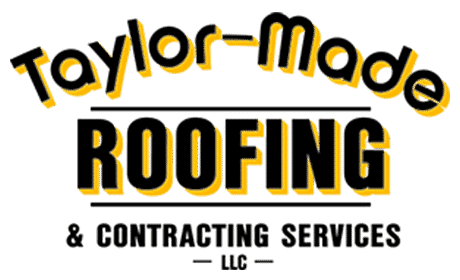If you’re looking to repair your roof, you may come into contact with roofers who advertise “waived” insurance deductibles. These contractors claim that they’re able to skirt insurance deductibles during repairs, saving the homeowners money. Some may even offer to “absorb” the deductible into their repairs, steeply discounting their services or even paying the homeowners for their business. While tempting, this practice is problematic – and not strictly legal. It’s a tricky scenario, and a tough one to navigate if you’re unfamiliar with insurance logistics. If you have questions about how roofing repairs impact your insurance deductible, read on to find out more.
Is It Legal for a Roofer to Cover My Insurance Deductible?
No – But It Used To Be
In the past, insurers doled out lump sum payments to homeowners when losses occurred, and the deductible was removed from the total sum. If, for example, a home suffered roof damage after a strong storm, insurance adjusters would determine the cost of repairing the roof. If a roof repair cost $6,000 and a homeowner had a $1,000 deductible, adjusters would just cut the homeowner a check for $5,000, subtracting the deductible cost. Today, that’s not the case.
Replacement Cost Value (RCV) Provisions
Today, most homeowners have Replacement Cost Value (RCV) provisions in their insurance policies. Instead of doling out lump sums, insurers will now break down payments into separate checks. Today, if a roof needs $6,000 in repairs from a severe storm, an insurance adjuster will subtract the $1,000 deductible from the estimated cost of repairs. The adjuster will also subtract any depreciation value from the estimate. That means the homeowner will receive a smaller check – rather, a series of checks – than they would have 15 years ago. A roofing contractor will then repair the roof and invoice the homeowner. In this example, if a homeowner sends an invoice of $6,000 or more to the insurance company, the homeowner may be eligible to recover some of the funds from the roof’s depreciation. It all comes down to the cost for the roofer’s services and the determined value of the roof.
Why It Matters
Put simply, roofers who claim to “waive” or “absorb” insurance deductibles are being dishonest. That’s the case for a few reasons. First, let’s consider the principles behind a homeowner’s insurance policy. At its core, an insurance policy is a contract between an insurer and a homeowner. The contract allows homeowners to pay annual premiums to ensure that they’re financially protected from home damage – minus the cost of their deductible. The insurance company is, in turn, protected from paying for your home if you breach your side of the contract. In this circumstance, that breach happens if you or your roofing contractor lie to the insurance company to skirt your deductible.
How Roofers “Waive” Deductibles
If your roofer is planning to send you an invoice, which you will then send to the insurance company, they’re expected to be honest about the cost of their work. If, for example, the roofer plans to complete $6,000 of repair work – but bills the insurance company for an extra $1,000 to account for the deductible – they’re lying to the insurance company. That’s a common practice when roofers claim to “waive” deductibles. Even if the homeowner is unaware of the roofer’s dishonesty, it’s still a problem. Some contractors will “absorb” the cost of the deductible by over-billing the insurance company, then cutting a check back to the homeowner. If you’re receiving a $1,000 check from a contractor and not declaring it on your income, that’s a tax issue.
_____
Some roofing contractors may make tempting claims about reducing your insurance deductible. At Taylor-Made Roofing, we don’t cut corners. We are trustworthy, law-abiding contractors, and we are here to make your experience stress-free. We’ve been in business in southwest Missouri for more than 20 years, and we’re committed to keeping your roof solid and attractive for years to come. Call us at 417-326-8778 to set up a consultation or roofing service.

